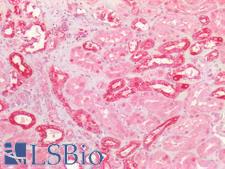Login
Registration enables users to use special features of this website, such as past
order histories, retained contact details for faster checkout, review submissions, and special promotions.
order histories, retained contact details for faster checkout, review submissions, and special promotions.
Forgot password?
Registration enables users to use special features of this website, such as past
order histories, retained contact details for faster checkout, review submissions, and special promotions.
order histories, retained contact details for faster checkout, review submissions, and special promotions.
Quick Order
Products
Antibodies
ELISA and Assay Kits
Research Areas
Infectious Disease
Resources
Purchasing
Reference Material
Contact Us
Location
Corporate Headquarters
Vector Laboratories, Inc.
6737 Mowry Ave
Newark, CA 94560
United States
Telephone Numbers
Customer Service: (800) 227-6666 / (650) 697-3600
Contact Us
Additional Contact Details
Login
Registration enables users to use special features of this website, such as past
order histories, retained contact details for faster checkout, review submissions, and special promotions.
order histories, retained contact details for faster checkout, review submissions, and special promotions.
Forgot password?
Registration enables users to use special features of this website, such as past
order histories, retained contact details for faster checkout, review submissions, and special promotions.
order histories, retained contact details for faster checkout, review submissions, and special promotions.
Quick Order
PathPlusTM AXIN2 / Axin 2 Antibodies
AXIN2, also known as conductin, is a member of the WNT signaling pathway and maintains the degradation and phosphorylation of B-Catenin (CTNNB1) alongside APC, AXIN1, CK1, and CSK3B in basal colorectal cells. It plays an important role in cell cycle control, as it maintains beta-catenin stability and negatively regulates WNT signaling. Beta-catenin deregulation plays a large role in the formation and progression of a number of cancers. Mutations in AXIN2 have been associated in particular with colorectal cancer of the microsatellite-unstable (MSI) phenotype. Loss of function of AXIN2 in these cancers contributes to aberrant activation of WNT signaling and tumorigenesis. Germline mutations in this gene are also associated with a predisposition for colorectal carcinoma. In immunohistochemistry, AXIN2 has cytoplasmic and nuclear positivity in all tissues throughout the body.
1 PathPlusTM Antibody

☰ Filters
Products
Antibodies
(1)
Type
Primary
(1)
Target
AXIN2 / Axin 2
(1)
Reactivity
Human
(1)
Mouse
(1)
Rat
(1)
Application
IHC-P
(1)
WB
(1)
ELISA
(1)
IF
(1)
Host
rabbit
(1)
Product Group
PathPlus Cancer
(1)
Isotype
IgG
(1)
Clonality
polyclonal pc
(1)
Format
Unconjugated
(1)
Publications
No
(1)

Cancer
AXIN2 / Axin 2 Rabbit anti-Human Polyclonal Antibody
Mouse, Rat, Human
ELISA, IF, IHC-P, WB
Unconjugated
0.05 mg/$460
Viewing 1-1
of 1
product results











